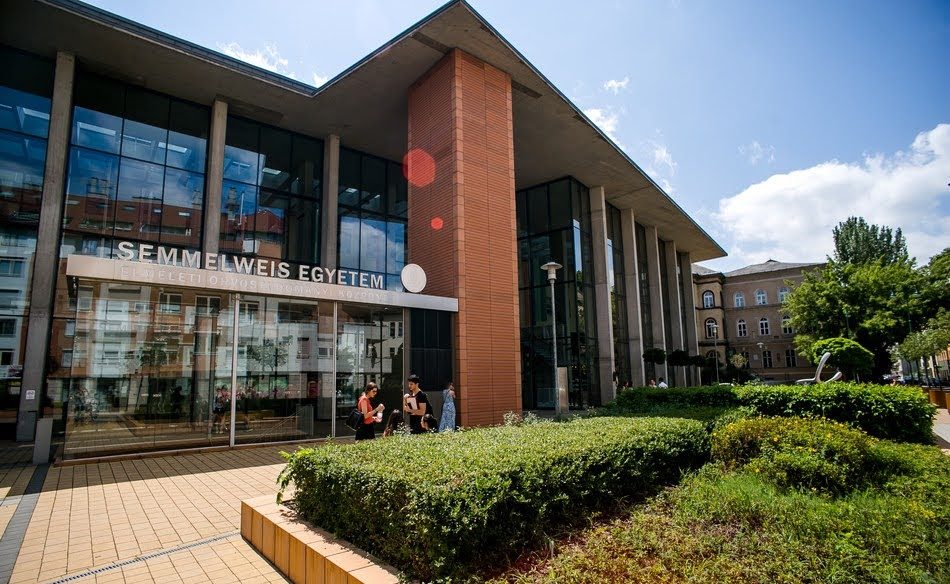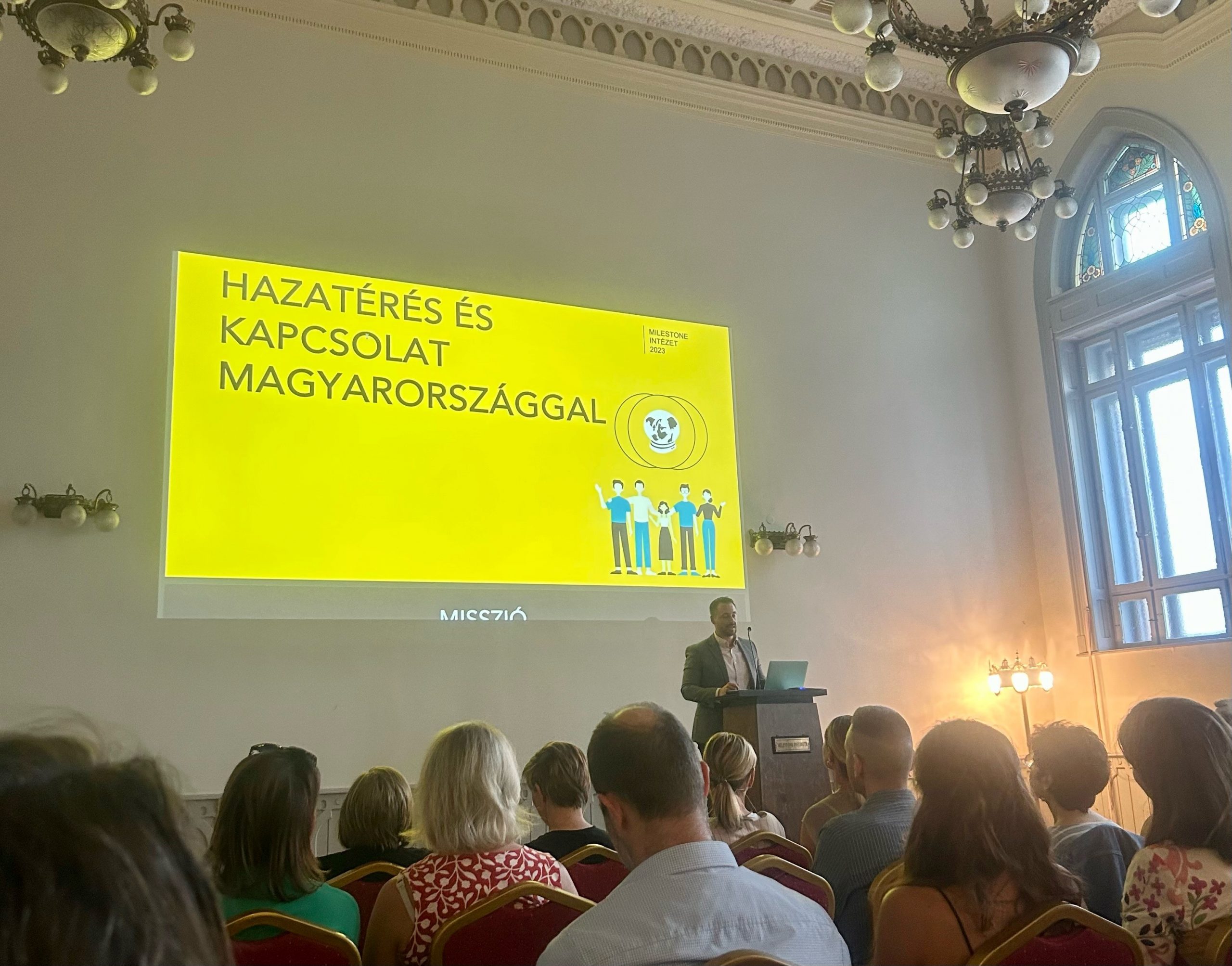
As a recent survey shows, the majority of young jobseekers are not afraid of finding a job that matches their qualifications and meeting the expectations of managers.Continue reading

The Hungarian Youth Association and the Milestone Institute held a conference entitled ‘All roads lead home? – Being abroad is the goal or a stop?’ on September 6 in Budapest. After the opening speech by Dr. Veronika Varga-Bajusz, Deputy State Secretary for Higher Education, the organizers presented their research on Hungarian students studying abroad.
The Milestone Institute was founded in 2010. It provides personalized education for secondary school students. Their domestically developed, internationally recognized English-language programs, delivered alongside secondary school, provide intellectual development and academic immersion. The educational programs were designed to nurture a community of future leaders who are committed to creating a competitive Hungary in the 21st century.
Two research papers were presented at the forum.
While one examined former students of Milestone Institute and their career and mobility data, the other mapped the financial situation of Hungarian students studying abroad in Hungary.
The data of the first research study was obtained by examining the profiles of 1,180 students who graduated from the Milestone Institute between 2011 and 2022, while career and mobility data were collected from 785 students in autumn 2022.
As a result, it was revealed that Milestone students are present at 22 universities worldwide. Of these, 65% study at one of the world’s top 100 universities.
Over the past 10 years, the gender distribution of alumni has been evenly balanced, with males and females representing 51-49% of Milestone alumni.
In terms of the field of study they choose, they also do not deviate from the general global trend: females are choosing humanities in slightly higher proportions and males are choosing real sciences.
The proportion of those choosing Hungarian higher education has not changed in the more than 10 years since Milestone was launched. They mostly choose to study health and science. Those choosing arts and languages are the least likely to continue their studies in a Hungarian university.

One of the buildings of the prestigious Hungarian medical school, Semmelweis University. Photo via semmelweis.hu
Over the last 11 years, the UK has had the highest proportion of students continuing their studies, as it has the highest number of top universities in Europe offering English language courses.
Two in three Milestone alumni return home to Hungary after graduation and one out of three Milestone alumni who have graduated returns home after three years.
61% of Milestone graduates studying abroad return home after graduation.
More than half of graduates from top international universities, 58% of graduates from the world’s top 100 universities, and 51% of graduates from Oxford and Cambridge decide to settle down in Hungary after their studies.

Wren Library at the University of Cambridge. Photo via Facebook/University of Cambridge
Currently, 39% of alumni work in Hungary, 90% of them in Budapest. Of those not living in Hungary, 78% live in the UK, but there is now at least one Milestone alumni living in 33 different countries on every continent of the world.
Most people are currently working in education and research, but there are also many in the IT and financial sectors.

Ádám Zeitler, co-founder of Milestone Institute, presenting at the forum. Photo: Hungary Today
The aim of the second research study, the Youth Affluent Survey Research Study, was to map the financial situation of Hungarian students studying abroad. The sample was taken between May 2022, and August 2022. The respondents are drawn from 12 study countries: the US, Luxembourg, Belgium, Denmark, Spain, and Singapore.
Students mainly go abroad because they find it beneficial to gain knowledge and experience from a different country.
94% of students think it is easier to find a job with a foreign degree than with a Hungarian one, and 97% think that the value proposition of university courses abroad is better.
Contrary to popular belief, studying abroad is not the privilege of the wealthiest. Students studying abroad are largely self-sufficient: 76% of students work while studying at university.
Furthermore, it is a common misconception among companies that
students who study abroad expect excessively high salaries when they start their careers in Hungary. This is not the case.
Average career starters would be happy to work in Hungary for a net monthly salary of 510,000 HUF (EUR 1,307) in Hungary. For students who have graduated in Hungary the expected salary is HUF 330,000 (EUR 845.8).
The research confirmed that the number and proportion of students studying abroad is also gradually increasing. Considering the competitive knowledge and work experience of students studying at the world’s leading universities and in the most competitive labor markets, these students represent an unparalleled value for Hungary’s cultural, economic, and innovative development.
Featured photo: Facebook/Milestone Institute